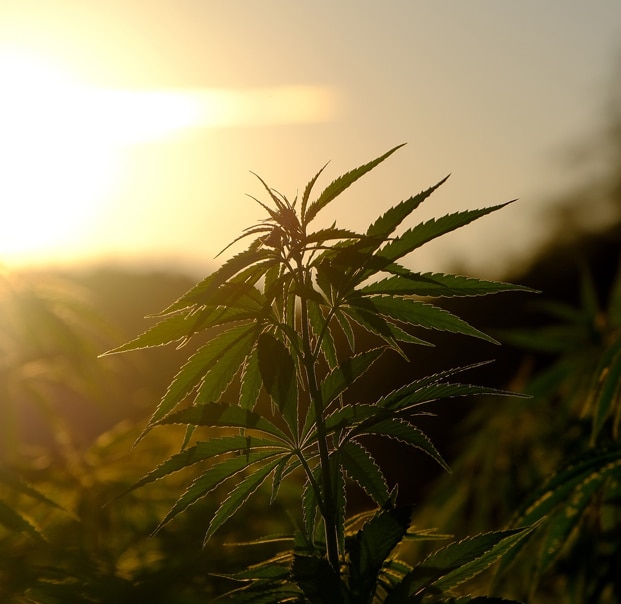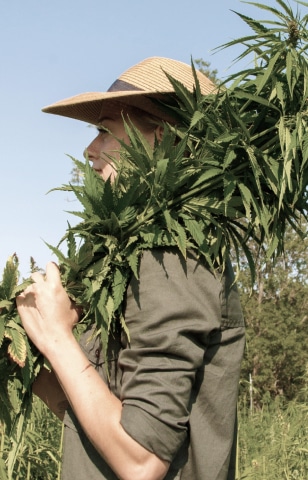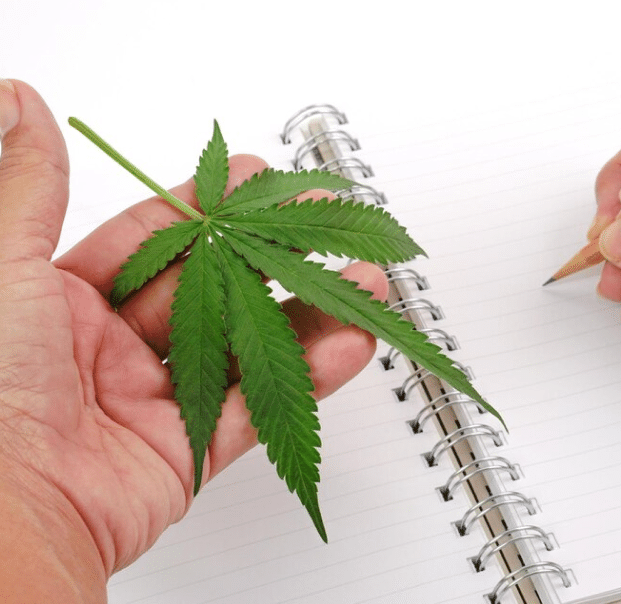Background
We’ll start with a lesser-known fact that the first cannabis-related encounter the state of Iowa had was long before 2013. Back in 1978, The Department of Human Services was permitted by the state to allow cannabis prescriptions under the Cannabis Control Act. However, they never acted on it.
So, in Iowa, the trial of medicinal use of cannabis began thanks to the Compassionate Use of Medical Cannabis Pilot Program Act in 2013. The state stipulated that cannabis and cannabis-infused products were legal for patients with debilitating medical conditions.
Soon after, in 2019, the Medical Cannabis Pilot Program was formally accepted as a permanent fixture in the law and expanded further. Plus, the Iowa Cannabis Regulation and Tax Act (ICRTA) was introduced to legalize the use and sale of recreational cannabis within the same year.
Types of Cannabis Licenses in Iowa
Cultivation Licenses
Permits for growing cannabis, with various tiers based on facility size and growing conditions.
Manufacturing Licenses
Allows for processing cannabis into various products, including extracts and edibles.
Retail Licenses
Enables the operation of dispensaries and delivery services for medical and/or recreational use.
Distribution Licenses
Required for transporting cannabis products between licensed facilities.
Manufacturing Licenses
Vertically integrated licenses for manufacturing. Highly limited.
Back to the TopHow to Obtain a Cannabis License in Iowa?
Step 1. Conduct Comprehensive Research and In-depth Preparation
- Market Analysis: Initially, you should judge the overall size of the market and its trends to see potential growth or falls. Later, you can focus on the location you wish to operate in to understand the consumer demographic, economic factors, and area-specific challenges.
- Consumer Insights: You should start by considering the nature of your products and who your target consumers would be. If you open your business in a location where the majority age, income levels, or geographic obstacles make sales difficult, you’ll be a sinking ship.
- Regulatory Proficiency: In Iowa, cannabis and cannabis-infused products are legal according to the federal allowance of THC levels. The CRTA provides guidelines for your registration and operation as a legal business. But there can be hurdles beyond these rules. You must also comply with local laws and authorities, which municipalities or other legal bodies may create.
- Competitive Analysis: Considering the limited number of licenses the state of Iowa has allowed, your competition in the market may be less initially but will grow as they increase the caps. To succeed, you can search for the market share, strategies, strengths, and weaknesses of your competitors. Based on your findings, you can analyze potential opportunities and threats for your own business.
- Site: Ideally, you should have a spot in mind when you’re planning for the business. It would help if you chose the city or general area according to the value of opportunity present there, but you must finalize a site according to the zoning rules.
- Risk Assessment: The cannabis industry is notoriously high-risk. There are regulatory and compliance-based hurdles. Additionally, supply and demand fluctuations can threaten your stability. The best step is being aware of the potential risks you’ll face and having cannabis insurance coverage.
- Network Building: Cannabis entrepreneurs are growing by the day, giving us all the opportunity to network and form a professional community. Knowing the right people will open greater opportunities for you to grow your business and increase your professional experience in the industry.
Step 2: Develop a Solid Business Plan
Draft a robust business plan detailing your target market, financial projections, and marketing strategies.
Step 3: Assemble the Necessary Documentation
All license applications require a list of documents which can provide:
- Extensive disclosure for principal officers and those with controlling and financial interests in the licensee
- Ownership and management of the establishment/business
- Compliance plans
- Operations plans
- Proof for Social Equity applicants criterias
Plus, the application should have a cover page that clearly states the applicant’s name, address, mailing address, e-mail, phone number, and intended location.
Step 4: Submit the Application
1. How to Apply for a New License
For each license, you’ll fill and submit the relevant application form. You must gather all necessary documents and present them in the order the office describes. Once your application is complete, you must pay the application fee for your license type.
2. How to Renew Your License
You must submit a renewal application (or prescribed document) and all relevant documents to renew your license. Your premises may be subject to an inspection by the department in charge of your license. You’ll also need to submit a renewal fee, which varies based on your status (social equity applicants benefit from discounted fees).
3. Agent Card Requirements
The applicant must be employed at a cannabis business. The card takes 30 days to be processed and is valid for a year. The applicant must have a clear criminal record, with no serious offenses. All agents must receive an annual 8 hours of training, which includes 2 hours of Responsible Vendor Training.
4. Limitations on Employment
All employees handling cannabis and related products must be 21 years of age or older. Each employee also provides fingerprints to check their criminal record. Employee who directly handle cannabis must own Agent cards.
5. How to Apply for an Agent Card
Start by registering for an account on the DOA website. Create a New Application and opt for “New Agent Registration.” Provide the required demographic information and write about the facility you’ll work in. Then, upload the mentioned documentation and pay the $100 application fee to complete your submission.
6. Payment and Fees
Application fees for Craft Grower, Infuser, and Transporter licenses are $5,000 for normal applicants and $2,500 for those under social equity. You must pay between $5,000-$40,000 once the license is awarded. As for cultivation centers, license application and later renewal are $100,000. You have to pay the same amount once you’ve received the license.
Payment and Fees
Note: Fee structures are subject to change. Consult the official Iowa cannabis regulatory website for current fee schedules.
Application Fees
The application fee covers the initial costs associated with processing and reviewing cannabis business license submissions in Iowa. These fees vary depending on the type of license and the size of the proposed operation. It’s essential to ensure all application materials are complete and accurate to avoid delays or additional costs.
License Fees
License fees are required to maintain compliance and secure operating privileges for cannabis businesses in Iowa. These fees are determined based on the license type, such as retail, cultivation, or distribution, and are typically due annually. Staying current with license payments is crucial to avoid penalties or disruptions in business operations.
Application Review and Compliance Inspection
The relevant departments normally issue an applicant notice of their decision within 60 days. The selection is based on a point system, out of which an applicant must score 75% to be a successful candidate.
Once the successful applicant obtains their location and passes their compliance inspection, they can begin operating their business.
Post-Application Steps
Your application may be approved or rejected due to a limited number of licenses and a high volume of applicants; the process is competitive and doesn’t guarantee each applicant one.
Once you receive approval, you must remember the compliance regulations for both medical and recreational cannabis use. Here’s a brief about medical cannabis-related law in Iowa:
Buyers must consult a medical marijuana doctor who may recommend cannabis treatment based on medical records. A medical cannabis patient, once diagnosed, can apply for an Iowa medical marijuana card through the Health and Human Services Department.
The medical cannabidiol program overseen by the state ensures that Iowa medical card online applications are processed efficiently. The program focuses on alleviating symptoms associated with various conditions, including chronic pain and other qualifying conditions specified by the state.
The online portal streamlines the application process for eligible individuals seeking to join Iowa’s medical cannabis program. These people must provide their Iowa Medicaid member card for the application process. This step ensures that individuals meet the necessary criteria and are indeed adult patients eligible for inclusion in the medical cannabidiol program.
Caregivers must submit a separate caregiver registration application to assist medical cannabis patients effectively. Note that caregivers must comply with the state’s regulations and possess a valid Iowa driver’s license.
As a cannabis business owner, you must be mindful about who you’re selling your products too as non-compliance can result in strict legal procedures and hefty fines.
Risk and Compliance Factors From AlphaRoot
The cannabis industry, while burgeoning with opportunities, is not without its complexities and inherent risks. Understanding and mitigating these risks is crucial for long-term success. AlphaRoot, a prominent insurance and risk management firm specializing conduct business in the cannabis sector, sheds light on the key risk and compliance factors
1. Regulatory and Legal Risks
Labyrinthine Regulations The cannabis industry is highly regulated, and compliance with state and local laws is paramount for cannabis establishments. Navigating the intricate web of regulations, which can vary significantly from one jurisdiction to another, poses a substantial challenge for cannabis establishments. Failure to comply can result in fines, license revocation, or legal consequences.
Federal Ambiguity Cannabis remains illegal at the federal level in the United States, despite state-level legalization of recreational marijuana. This dichotomy creates uncertainties and exposes businesses that sell recreational marijuana here to potential federal enforcement actions.
2. Financial Risks
Cash-Intensive Operations Due to federal banking restrictions, many cannabis businesses operate primarily in cash. This not only presents security risks but also complicates financial management and taxation.
Taxation Challenges Cannabis businesses face unique tax challenges, including limitations on deductions and potential audits. Understanding and complying with tax regulations is essential to avoid financial penalties.
3. Security Risks
Theft and Robbery Cannabis businesses are susceptible to theft and robbery due to the high value of their products. Implementing robust security measures at a marijuana cultivation facility, including surveillance systems and secure storage, is vital to mitigate these risks.
Cybersecurity As with any industry, cannabis businesses are vulnerable to cyberattacks. Protecting sensitive customer data and business information is critical.
4. Product Liability and Quality Control
Product Liability Claims Ensuring the safety and quality of cannabis products is crucial to prevent product liability claims. Contaminated or mislabeled products can lead to legal and financial repercussions.
Testing and Quality Assurance Collaborating with reputable independent testing laboratory and facilities, as required by regulations, is essential to verify the safety and potency of cannabis products. Consistent quality control is essential to maintain consumer trust.
5. Market Competition and Volatility
Saturated Markets in regions with a high concentration of cannabis businesses, competition can be fierce. Navigating market saturation requires effective differentiation and marketing strategies.
Price Volatility The price of cannabis products can fluctuate significantly, impacting profitability. Businesses must adapt to market dynamics and price changes.
6. Environmental and Sustainability Concerns
Resource Intensity Cannabis cultivation and processing can be resource-intensive, including water and energy consumption. Businesses need to address sustainability concerns and adhere to environmental regulations.
Waste Management Proper waste disposal and recycling practices are essential to minimize environmental impact and meet regulatory requirements.
7. Talent and Workforce Challenges
Talent Shortages the cannabis industry often faces challenges in recruiting and retaining qualified personnel due to its specialized nature. Employee turnover can disrupt operations.
Training and Compliance Businesses must invest to ensure employees are well-informed about compliance and safety protocols.
Cannabis License in Iowa FAQ
You can renew your cannabis business license at the department that issued it. If your business has been found to be non-compliant or your previous license has been revoked, you may not receive a new license.
The wholesale of cannabis by growers is taxed at 7%. For recreational cannabis, there’s a 10% tax on merchandise with less than 35% THC, a 20% tax on cannabis-infused products, and a 25% tax on any commodities with more than 35% THC. Plus, local governments can impose an excise tax of up to 3%.
Generally, public areas and state-owned buildings are off-limits for cannabis advertisement. Plus, no cannabis advertisement can display visuals of cannabis.
To work in the cannabis industry in Iowa, you must be 21+. Individuals handling cannabis are called “Agents” and must possess an Agent Identification Card according to the nature of the business.
About the Author

AlphaRoot Team
The AlphaRoot marketing team are seasoned experts with deep knowledge of the cannabis industry. Our informative articles help cannabis businesses thrive in a competitive landscape. From compliance to insurance tips, we’re dedicated to providing advice tailored to your needs.





